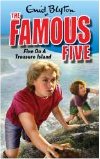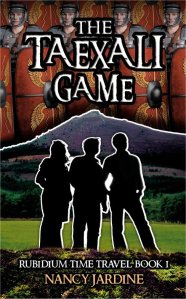I read an article last week− one shared on Facebook − about the controversy over the use of the word said in our writing. Should the overused said be totally expunged from fiction? Or should it be used as often as an author thinks a reader is comfortable with it? The article particularly highlighted the laziness of some authors who don’t bother, or take time to vary their vocabulary- their editing skills sloppy. The boring repetition of some recently produced highly-acclaimed novels was regarded as poor writing being given a prominence that shouldn’t be occurring; and, in essence, an encouragement of the dumbing down of the English language. (My apologies- since it was late at night I didn’t bookmark that particular article, though a Google search will bring up plenty of other articles as in- HERE)
I know that my own writing style, and use of common verbs, has changed and evolved hugely over the decades. I grew up with the word said being used a LOT in the earliest books that I read, novels like those of Enid Blyton. She was a particularly British author of novels for children but I imagine, in the 1950s and the early 1960s, the American equivalents weren’t really all that different. Here’s a bit from the very beginning of one of the books of ‘The Famous Five’ by Enid Blyton – Five on a Treasure Island.
 “Mum, have you decided about our summer holidays yet?” said Julian, at the breakfast table. “Can we go to Polseath as usual?”
“Mum, have you decided about our summer holidays yet?” said Julian, at the breakfast table. “Can we go to Polseath as usual?”
“I’m afraid not,” said his mother. “They’re full up this year.”
The three children at the breakfast-table looked at one another in great disappointment. They loved the house at Polseath, and the beach was perfect for swimming.
“Cheer up,” said Dad. “We’ll find somewhere else just as good for you. But Mum and I won’t be going with you this year. Did Mum tell you? ”
“No!” said Anne in surprise. “But…you always come with us on our holidays!”
“Well this time Dad and I have planned to go to Scotland,” said Mum. “Just the two of us! You’re all old enough to look after yourselves now, and we thought you’d love the chance to have a holiday on your own! But now that you can’t go to Polseath, I really don’t know where to send you.”
I realised quickly enough as a young reader that the simple word said was used to denote a new speaker. The technique of scanning past the word said was learned quickly, said only serving as a highlighter for the name of the speaker which followed on after. I was a voracious reader of Enid Blyton, and anything else I could get my hands on, but I do remember talking to friends at the time and us noting that said was often a bit boring. However, we also did agree (probably aged 9 or so) that we could romp through the story more easily and it didn’t matter too much because there were heaps of other new words to learn in the stories. We were always keen to extend our vocabulary! (We also learned to use an exclamation mark a LOT! as well. 😉 )
By the time I was leaving primary school, at twelve years of age, the word said had almost been drummed out of my own ‘composition’ story writing − a barrage of alternatives learned as substitutes. During my secondary and tertiary education, the use of said more than an occasional time would have earned me a hugely downsized mark in the assessment of written work.
I find it a backward step if authors of today are too lazy to take the time to vary their use of vocabulary since what they are essentially attempting is to use their best language skills to entertain their readers. I’m not saying there is never a place for the word said in dialogue in a novel, but as an adult I’m very put-off (and frankly bored) reading a book if said is used expansively. Put your hand up if you’re already a bit fed up of seeing said highlighted in this article? I know that I am *grin*. If I use an alternative to said it’s never a word that I don’t know the meaning of. I sometimes use a thesaurus to find alternatives, the options offered rarely new – but I’m excited if they are. I’m sad if people feel differently and don’t want the effort of extending their vocabulary.
A writing technique more recently learned by me is to totally avoid the use of direct speech/ dialogue tags / speech tags− or whatever terminology you want to use for them. In my soon to be self-published time travel adventure for a Middle Grade/ YA market, The Taexali Game, my excellent editor − Jeff Gardiner − highlighted a few passages where I hadn’t consistently used my ‘avoidance’ technique and where I needed to do more work. His advice from the outset had been that the readership market that I was aiming for would be looking for this writing technique to be employed nowadays, rather than the more old fashioned use of speech tags. Jeff was a teacher of English till last year, his classes being the 12 -16 age group, so he had more recent knowledge than me and I completely trust his advice.
Consistency was achieved but only by me expending effort, and in some instances, dogged slog! However, that was all balanced by the fact that I loved being able to write about contemporary kids and their perceptions of the world along with what I imagined were the very different outlook of those characters who are from AD 210. Here’s a bit from The Taexali Game.
(At this point in the story, the contemporary trio of time travellers have been transported from my apart of Aberdeenshire, Scotland, to the same geographical location in AD 210 − though initially on arrival they have no idea where they are or when. Deduction plays highly in the game as they work out what’s happening around them. This era was when the local Celtic Tribes were invaded by thousands of soldiers of the Roman Emperor Severus’ Roman legions and any strangers in the area were suspect.)
“You have come to Balbath to speak with my father, Tuadh?” Seonagh prodded closer to Brian, her voice and knife working as one.
“Yes.” Aran decided it was time to join in. “That’s where we’re going, but since you’re here now we’ll just follow you.”
Thwhomp!
The spear that embedded itself in the ground between himself and Seonagh stunned him, the vibration of the shaft twanging and humming well after the impact. He jumped back from the girl as though scalded.
“Seonagh. Is there trouble?”
The deep boom of the questioner made him whirl around, so silently had the warrior come upon them. The very sound was scary enough to Aran, but that wasn’t a patch on the look of the man who could just be made out in the speckled sunshine. A giant of a warrior loped across the glade towards them. He wasn’t so old, but he was awesomely ferocious looking. Fianna nudged Aran’s elbow.
“He’s totally cool.” Her low tone was somewhere between awe and wonder.
The warrior’s long dirty-blonde hair hung well down below his shoulders, rippling in untidy waves. Two thin braids framed his severe looking face. Above his brow, the hair was short and spiked out stiffly from his scalp. Aran looked at the man’s hair closely. Fianna had described his own hair as being whitened by some sort of gunge. He wanted to feel the top of his head to compare it with the warrior standing before him, but he didn’t think such sharp movements were a great idea.
A small dark blue mark decorated the warrior’s brow. It looked like an animal, maybe even a boar, though he wasn’t sure. He was too far away to see the detail, but there was no way he would willingly go closer to confirm his thoughts.
A bushy moustache on the warrior’s upper lip drooped down the sides of his grim looking mouth; the ends of the whiskers reaching the underside of his otherwise shaved chin. One cheek had a brutal looking scar that sloped from the edge of his eye to just short of his ear, the skin still reddened and puckered, not long healed. One huge fist gripped a slender blade, the deadly-sharp edge glinting in the mottled rays flickering through the trees.
Aran regretted the quick peep he’d dared at the man’s face since the warrior’s menacing black eyes glowered at them all when he stepped purposely between them and the princess, before his gaze focused on the dead animal and the blood around their feet.
“Are you hurt, Seonagh?” The warrior scanned the blood smeared on her.
“Not so much, Tyrnan. This is mainly boar’s blood.” Seonagh pointed to her clothes and legs. “The creature pursued me, but Duhlain and this other young warrior helped kill it. They saved my life because it was sure to disembowel me.”
“And your arm?” Tyrnan growled again not yet satisfied with her wellbeing.
Seonagh looked down at her arm where a steady stream of blood ran down to her fingertips and dripped off, less than there had been earlier but still a reasonable flow. “This is where the boar scraped me. A flesh wound only and nothing to fuss over.” She swiped the blood off with her dress and then examined the cut.
Aran noted the deep slash, about six or seven centimetres long, that had scored through quite a few layers of skin. Blood oozed from the whole area, the edges of the cut ragged and an angry red. He glanced at Brian who wasn’t usually too good when it came to blood and bits, but his mate had buttoned up his feelings fairly well, his teeth biting into his bottom lip, his gaze averted. He was fairly sure if it had been Brian who was injured he’d have easily bested the boar’s squeals.
Peeling off a thin cord from her belt Seonagh mutely handed it over to Tyrnan, her wounded arm outstretched. Her face was pale, but she remained completely silent, her expression blank, showing no sign of any pain. Tyrnan trickled a few droplets of liquid over the cut, from a skin he carried on his belt. A cleansing of sorts. Grunting and muttering, the man’s movements were assured and purposeful as he repeated the treatment, wiping blood away with a piece of cloth that Seonagh took from her waist pouch. The warrior still looked absolutely scary, his mouth remaining a grim straight line, his eyes a black wrath.
Friendly doctor’s bedside manner? Brian clearly didn’t think so; a horrified gasp whiffing past his lips when Tyrnan squeezed the edges of the wound tightly together. It must have been excruciating, but Seonagh didn’t utter a sound. He was very impressed with the princess’s self-control. Brian, on the other hand, now looked like he might pass out.
Tyrnan suddenly barked at Fianna, his anger a petrifying bellow. “Why do you stand there gawping?”
Fianna was riveted to the ground staring vacantly at the warrior. If Tyrnan hadn’t been holding Seonagh’s arm he was convinced Fianna would have received a good sound blow from the back of the man’s hand, before he blasted on at her. “Fetch the healing mosses!”
Fianna was spared from more of Tyrnan’s thunder when Duhlain thrust a pad of moss and lichens into the man’s hand, a bundle that the boy had swiftly pulled up from somewhere close by. In a few quick twists of the cord, the mosses were packed on and Tyrnan had the wound dressed tight and secure.
Aran was seriously impressed… and amused. He’d recently done some first-aid training at his Scout troop. Antiseptic wipes? Butterfly strips? Clean gauze? Sticking plasters or bandage? Nope! Not a one. He couldn’t suppress a small grin from escaping, but he made sure the terrorizing guard didn’t catch sight of it.
Do you think there’s anything repetitive in this sample? Do you think I’ve used any vocabulary that is too difficult? Do you think a reader of 12 years + would have any problems with understanding who is talking at any given time?
I’d love to know your opinion because I’m aiming to publish this story very, very soon!
Have a good weekend.
Nancy Jardine writes contemporary romantic mysteries; historical romantic adventures and time travel adventures for a Middle Grade/YA market.
 Novels are mostly available in print and ebook formats from Amazon, Barnes & Noble, Smashwords, and other ebook stores.
Novels are mostly available in print and ebook formats from Amazon, Barnes & Noble, Smashwords, and other ebook stores.
Monogamy Twist (new sweet romance version published 27th March 2015) only 99p/99c equivalent during launch week




Nancy, this is an EXCELLENT post! I’ve gone back and forth regarding the word “said,” and as a journalist, I’ve been taught we don’t “embellish” with other words, like “stated.” Going back and forth between journalist and creative writing can be taxing for me so reading your post and seeing your example (and I think this will be a great story for youngsters, by the way!) has struck a chord for me. Thank you for a great post and for enlightenment!
LikeLike
You’re very welcome, Gayle and I’m glad you like the sample. It’s not easy to use that avoidance technique, and not every reader will enjoy the results, but it’s another skill to learn in writing.
LikeLike
I use the avoidance technique, as much as possible. I sometimes use said, because they say it is invisible. I often wonder why we have all those other words if we’re not supposed to use them. LOL. It’s hard to write for the youth of today, they are so used to everything being fast paced, that reading is very hard for them. I use shorter sentences, and try to keep everything fast paced, I hope I’m successful at it. Cher’ley
LikeLike
You are successful, Cherley! What the youth of today are doing has been encouraged/supported by by their elders so I hope they haven’t got it wrong for a lot of youngsters.
LikeLiked by 1 person
I use “he said” or “she said” when it’s not clear in a conversation who is speaking. If only two people are talking, I leave out the tags. This post was interesting.
LikeLike
Thanks Abbie. The making it clear is the hard bit!
LikeLike
Great post Nancy. I had been taught at a writer’s conference to use “said” always and not embellish or try to substitue, even though I think it gets boring, albeit somewhat invisible. I am so glad to get your POV on that issue. You have done an excellent job of avoiding it, and your other words have helped describe the scene, mood, etc too. Two for the price of one! Thanks for the example and your story sounds great for a young person. Again, sometimes we need to remember we have credence when deciding what and how we write our “stuff.”
LikeLike
Absolutely, Neva. We can follow trends to a certain extent but we, as authors, need to feel comfortable with what we produce.
LikeLike
I love discussions like this. There are so many differing opinions. I always thought Robert B. Parker was a genius at dialogue, especially his Spenser novels. Economy was the by-word.
The excerpt was fascinating. Good for you. doris
LikeLike
Thank, Doris. I don’t think I’ve ever read Robert B.Parker. I’m glad you like the excerpt.
LikeLike
Great topic Nancy. I really try hard to use other ways than “said”. I’ve read many books that were got very repetitious because of it. I like action, a look or a description that conveys the message rather than the “he said”. Loved the excerpt from your book and your writing. Thank you for discussing this. As Doris already mentioned, I love Robert B. Parker novels and the fact that they don’t overuse said.
LikeLike
Robert B.parker is added now to my growing list of TBReads, Linda.
LikeLike
I’ve also heard over the years that when using a dialogue tag, don’t overdo it when “said” works just fine. For myself, if I use “said,” I also include a phrase. Something like: “You need to take a bath,” Delores said, pinching her nose. Nowadays I’d rather avoid tags and go with: “You need to take a bath.” Delores pinched her nose as she backed away from her boyfriend, who’d just got home from work. And of course, I look for other tags such as “howled,” “rasped,” “growled,” “snorted,” “puffed,” “fussed,” “chided,” and “fretted.”
LikeLike
The art is in that looking, Mike. Finding alternative ways to not use ‘said’ too often, or other dialogue expressions that sound forced. Your examples show your effort in making your work flow better and that a first try isn’t always the best one.
LikeLike
I do a combination of indirect and said. Like Neva, I’ve heard that it’s best to use “said” if you need to instead of embellishing, because it is invisible. I like the indirect approach though. 🙂
LikeLike
Well Said! I struggle with alternative words quite often when I am writing. There are only so many ways to denote the click of the camera.
LikeLike
I think your excerpt reads well. We probably don’t need to to use ‘said’ at all, if we have done our job right!
LikeLike